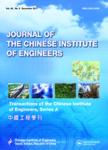版权所有:内蒙古大学图书馆 技术提供:维普资讯• 智图
内蒙古自治区呼和浩特市赛罕区大学西街235号 邮编: 010021

作者机构:Department of Electrical Engineering National Taipei University of Technology Taipei Taiwan Department of Computer Science National Taipei University of Education Taipei Taiwan
出 版 物:《Journal of the Chinese Institute of Engineers, Transactions of the Chinese Institute of Engineers,Series A》 (J Chin Inst Eng Trans Chin Inst Eng Ser A)
年 卷 期:2024年第47卷第4期
页 面:414-422页
核心收录:
学科分类:0810[工学-信息与通信工程] 0711[理学-系统科学] 12[管理学] 1201[管理学-管理科学与工程(可授管理学、工学学位)] 0808[工学-电气工程] 080802[工学-电力系统及其自动化] 0806[工学-冶金工程] 08[工学] 0701[理学-数学]
摘 要:This paper presents a novel optimization algorithm for designing single-tuned filters in industrial power systems to reduce harmonic distortion. Single-tuned filters are cost-efficient, simple, and easy to maintain. We formulate the filter design as an optimization problem, minimizing costs while incorporating harmonic limits and system constraints. Our solution algorithm simulates tree growth, proliferation, and death based on the forest algorithm to generate optimal solutions. This enables both local and global searches for fast convergence and feasible designs. Unlike traditional approaches, we account for variations in filter components and system parameters caused by factors like manufacturing tolerances, operating temperature, and frequency variations. Our study contributes by designing adaptive filters that match practical systems. We validate our method against previous publications and other techniques like simulated annealing and teaching-learning-based optimization. Simulation results demonstrate the effectiveness of our approach in minimizing costs, satisfying operation constraints, and accounting for component variations in this complex problem. © 2024 The Chinese Institute of Engineers.